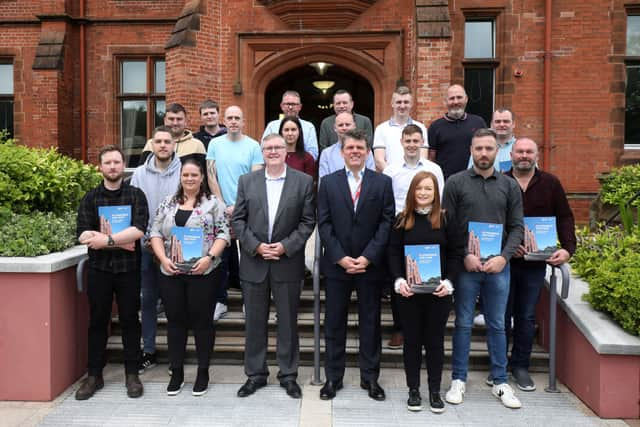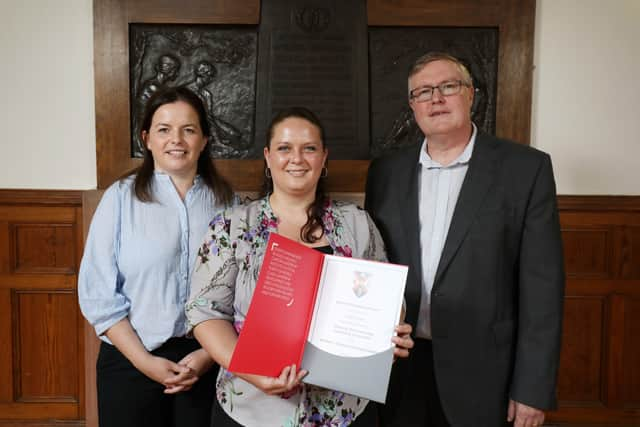Manufacturing skills boost as new NI programme develops front line managers
and live on Freeview channel 276
Frontline managers in Northern Ireland’s manufacturing sector are going through a new programme to help boost the sector’s productivity.
The Centre for Competitiveness and the William J. Clinton Leadership Institute at Queen’s University Belfast have put 19 representatives from companies such as Dale Farm, Denroy, Encirc, Interface, Moyola Engineering and Ryobi through the new Advanced Manufacturing Leadership Programme with many more set to follow.
Advertisement
Hide AdAdvertisement
Hide AdSponsored by the Department for the Economy (DfE) with support from the QUB Bright Minds initiative, and The Centre for Competitiveness, the programme has been designed to support the DfE’s ambitious 10X Economy Strategy and contribute to the sustainable growth of the Northern Ireland manufacturing sector.


Laith Dajani, executive director at the William J. Clinton Leadership Institute, said: “We are proud to support the Advanced Manufacturing Leadership executive education programme, that aims to equip supervisors and team leaders for future leadership roles in the face of digital disruption and transformation. By synergising academic research and rigor with practical expertise, the programme is designed and delivered in partnership with the Centre for Competitiveness to advance Northern Ireland’s competitive edge locally and internationally.”
Over a five-month period, the first cohort of students learned how to improve their personal management capabilities; lead their team with confidence; and implement practical tools and techniques for effective manufacturing operations. They have recently been presented with their certificates for completing the programme.
Participants were able to explore how Industry 4.0 can deliver digital transformation from the bottom up and shape the future of the manufacturing sector in Northern Ireland. Data Analytics, Design Thinking, and Circular Economy principles were covered to provide a robust toolbox that will enable the development of a sustainable and efficient manufacturing operation. Modules in finance, strategy and leadership helped them to increase their understanding of business from a manager’s perspective.
Advertisement
Hide AdAdvertisement
Hide AdThe second cohort of the programme is due to commence in September 2022.


William Ussher, senior executive, manufacturing systems at the Centre for Competitiveness, explained: “The people going through this programme are without doubt one of the most valuable assets in manufacturing businesses. The production front line management have excellent knowledge of processes and operations, they understand the recurring issues and are best placed to suggest improvements. This programme is designed to provide them with a range of skills to lead in a manufacturing environment. Our aim is to equip these front line managers to be the drivers of cost and value. I have no doubt that the first cohort of graduates from the programme are well equipped to go back and make a significantly positive impact for their companies.”
Dr. David Paulson, professor of practice at Queen’s Management School and programme director of the Advanced Manufacturing Leadership Programme, added: “Northern Ireland’s manufacturing businesses face multiple challenges: increasing productivity, recovering from the pandemic, adjusting to life after Brexit, understanding the opportunities and threats posed by Industry 4.0, and becoming more sustainable. All of these challenges would be tough enough for business leaders if they weren’t compounded by the difficulty of finding scarce management talent. The AMLP is designed to give high-potential front line managers in manufacturing environments the skills and confidence to progressively increase their impact, and to offer their employers an additional source of future management strength.”